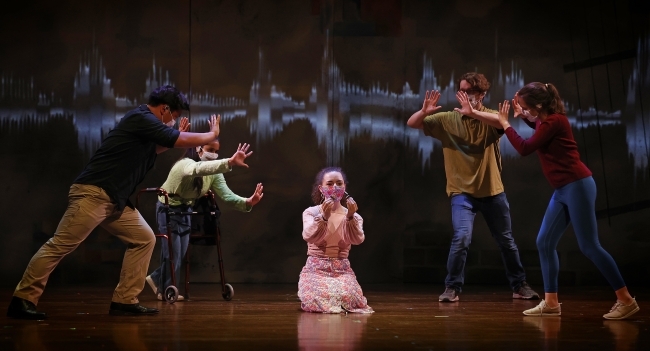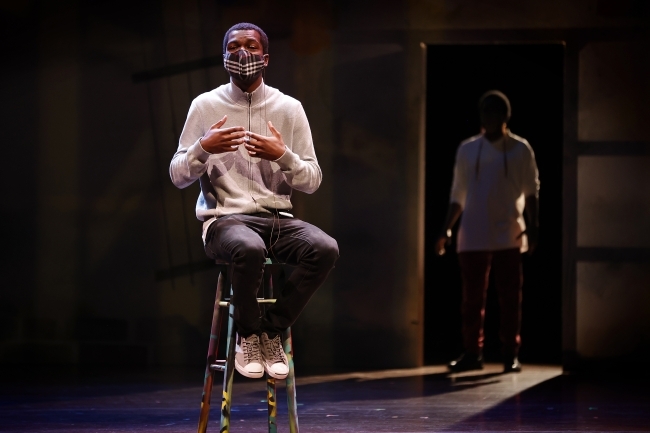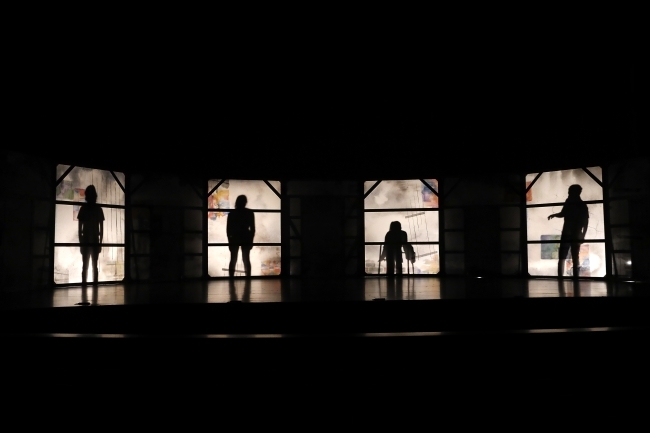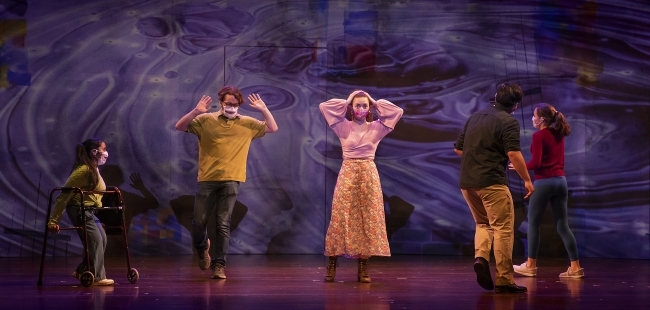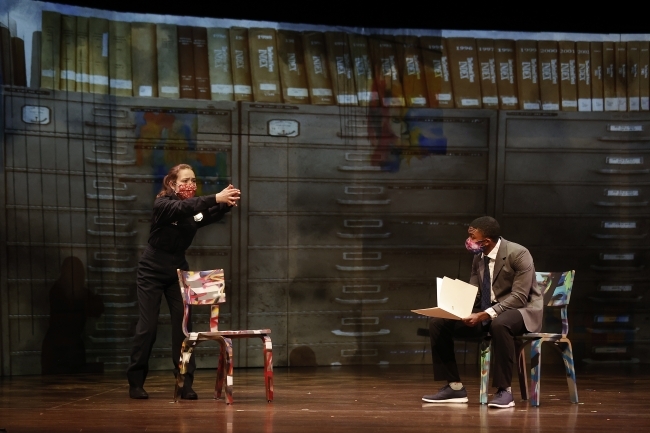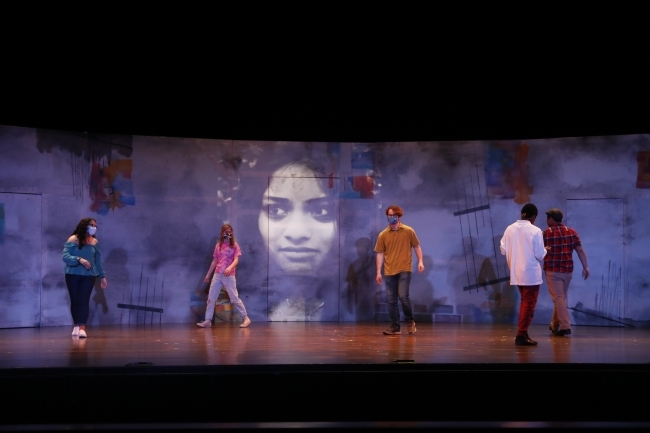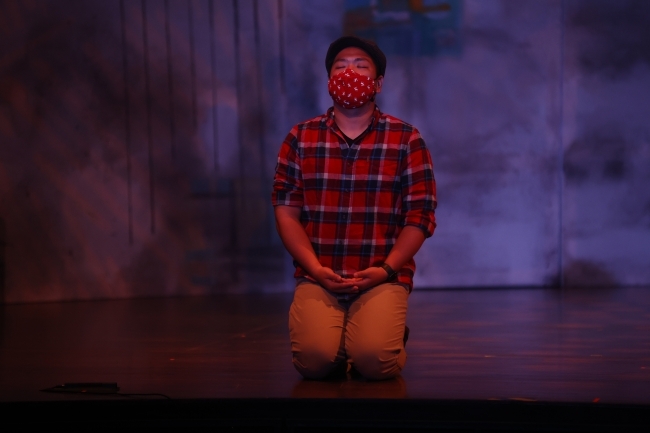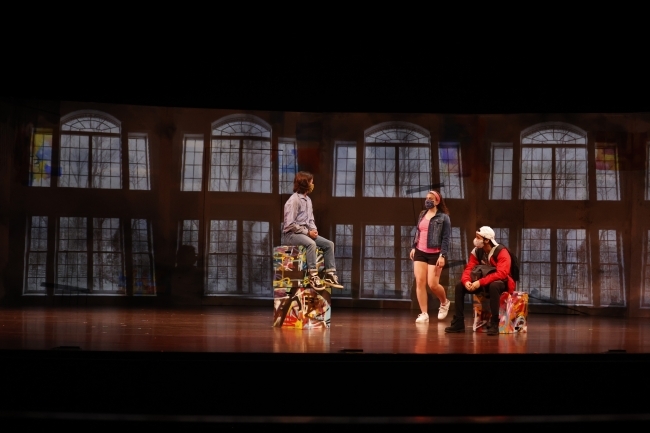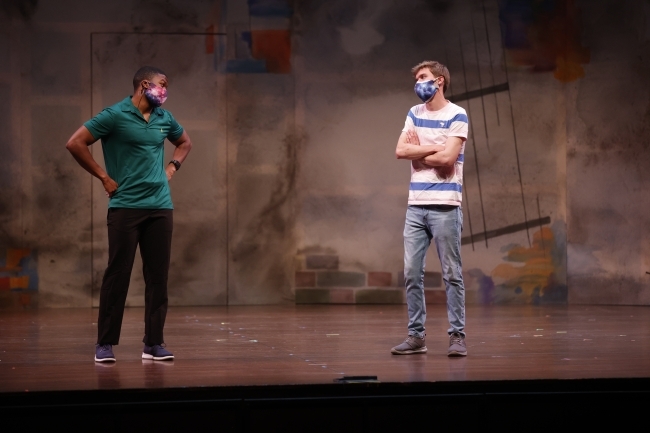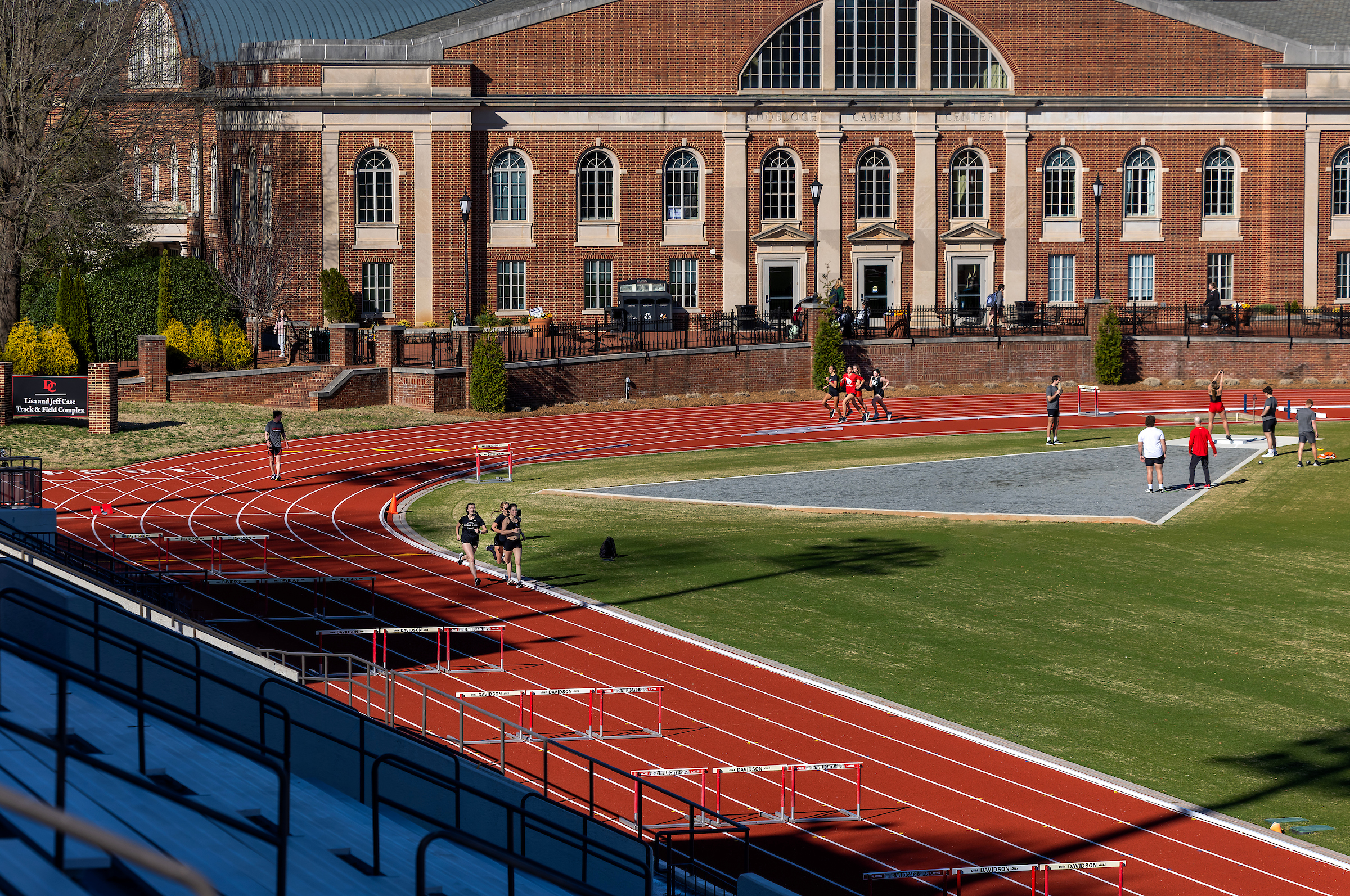Unvarnished Look: College Community Offers Up Its Stories Through Theatre
June 22, 2021
- Author
- Jen McGivney

For most of the cast and audience, “Unveiled and Unvarnished: Original Stories of Racism and Intolerance Amongst Us” was a return to the theatre after a year of dark stages.
It seemed only appropriate that the Davidson College Theatre Department production that reunited performers and attendees did so in a deeply personal way.
Even with just 70 people in the 600-person Duke Family Performance Hall Theatre, (sold-out crowds with room to allow COVID-19 era social distancing,) the connection between the performers and audience seemed palpable. The production featured 16 scenes that portrayed experiences of Davidson students, faculty and staff with racism and discrimination. These stories weren’t recountings of long-ago discrimination far away; many happened here, on this campus, very recently. Some are happening still.
The play began as an open invitation for an honest reckoning. Last fall, co-director Ann Marie Costa, the Samuel E. & Mary West Thatcher Professor of Theatre, invited all students—through the campus messaging system, through faculty members, through clubs and groups—to join a theatre production created to share stories of discrimination they’ve experienced. Twenty-two students, three faculty members and a staff member accepted the invitation. Costa codirected with Jeremy DeCarlos—a Charlotte actor, activist, and writer—and assistant director Olanike Oyedepo ’20.
“There was no game plan or blueprint. All the material that ended up on the stage came from conversations of students. We’d say, ‘What is your experience? What story of marginalization do you want to tell?’” says DeCarlos. “That kind of creative process is challenging in a way, but incredibly rewarding.”
“It was a privilege and an honor to be in a room as performers willingly became vulnerable while sharing their stories, and to have everyone else as listening ears to say, ‘Yeah, that is really messed up’ and validate each other’s experiences,” Costa says. “We all developed more empathy with each other through our storytelling.”


During the creation of the play, one scene wasn’t coming together. It involved two students—Lilliana Sandoval ’23 and Kim Bako ‘21—exploring the challenge of holding onto their identities as Mexican-American and Zimbabwean women at Davidson. The group faced a creative hurdle as they worked to intertwine the two stories into one scene. The directors huddled to the side, trying to uncover the plot. Then they looked over to see Sandoval and Bako together, playing music and teaching each other their home country’s dances.

“Here we (the directors) are, tinkering with this scene like mad scientists, and then we look over. Left to their own devices, there they are, dancing. It was the most beautiful natural thing, the two of them saying, ‘I’m going to teach you this dance that I know,’” DeCarlos says. “And I just went, ‘That’s the scene. Right there.’”
In the scene, the two women begin on separate sides of the stage, performing monologues describing the challenge of bringing their full selves to a majority-white school. Then each woman begins to dance, and as they dance, their sense of isolation wields to confidence and joy. Then, they come together to teach each other their dances. The scene ends with the two women dancing together, not only embracing their own heritage at Davidson but each other’s.
“We thought dance would portray the stories in a beautiful way. When I came to Davidson, part of me felt like I had to be different, because I was judged for the way I looked and dressed. But it wasn't who I wanted to be,” Sandoval says. “Dance is a physical way in which our bodies should be allowed to take up space because we have as much right to be here as anyone else does.”
Other scenes in the production explored racism, sexual assault, microaggressions, ableism and the college’s disturbing history with slavery. The goal was not to create a night of comfort, but a night—led by student voices—that compelled introspection and change through discomfort. The show ran from March 25-28. A video of the performance lives in the Davidson College archives, ensuring these voices remain part of Davidson’s history. Costa hopes that the cast may inspire immediate change as well.
“Maybe attendees will say that a story reminded them of an experience they had,” Costa says. “Or maybe a story reminded them of a time when they didn’t speak up on behalf of the individual that was being marginalized—when we recognize that, the next time we’re put in a similar situation, we might act differently and more proactively. That’s why we do theatre—to affect change in an audience.”
“I hope the audience was moved. I want them to feel that sense of uncomfortability, that is something that students of color feel every day being at a predominantly white college,” Sandoval says. “They must understand that the work does not end there, you can't just talk about it, you got to be about it.”
This article was originally published in the Spring/Summer 2021 print issue of the Davidson Journal Magazine; for more, please see the Davidson Journal section of our website.







